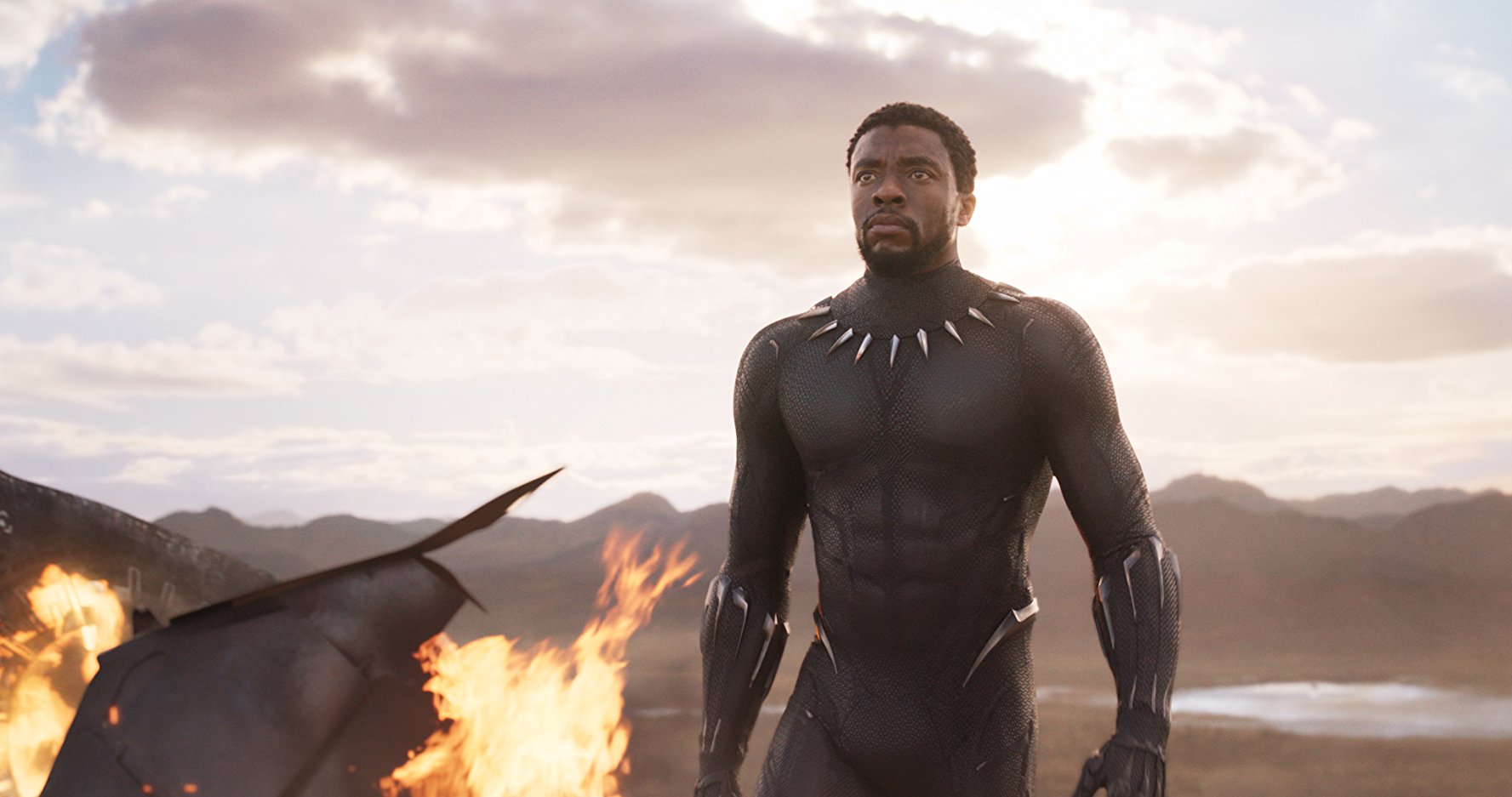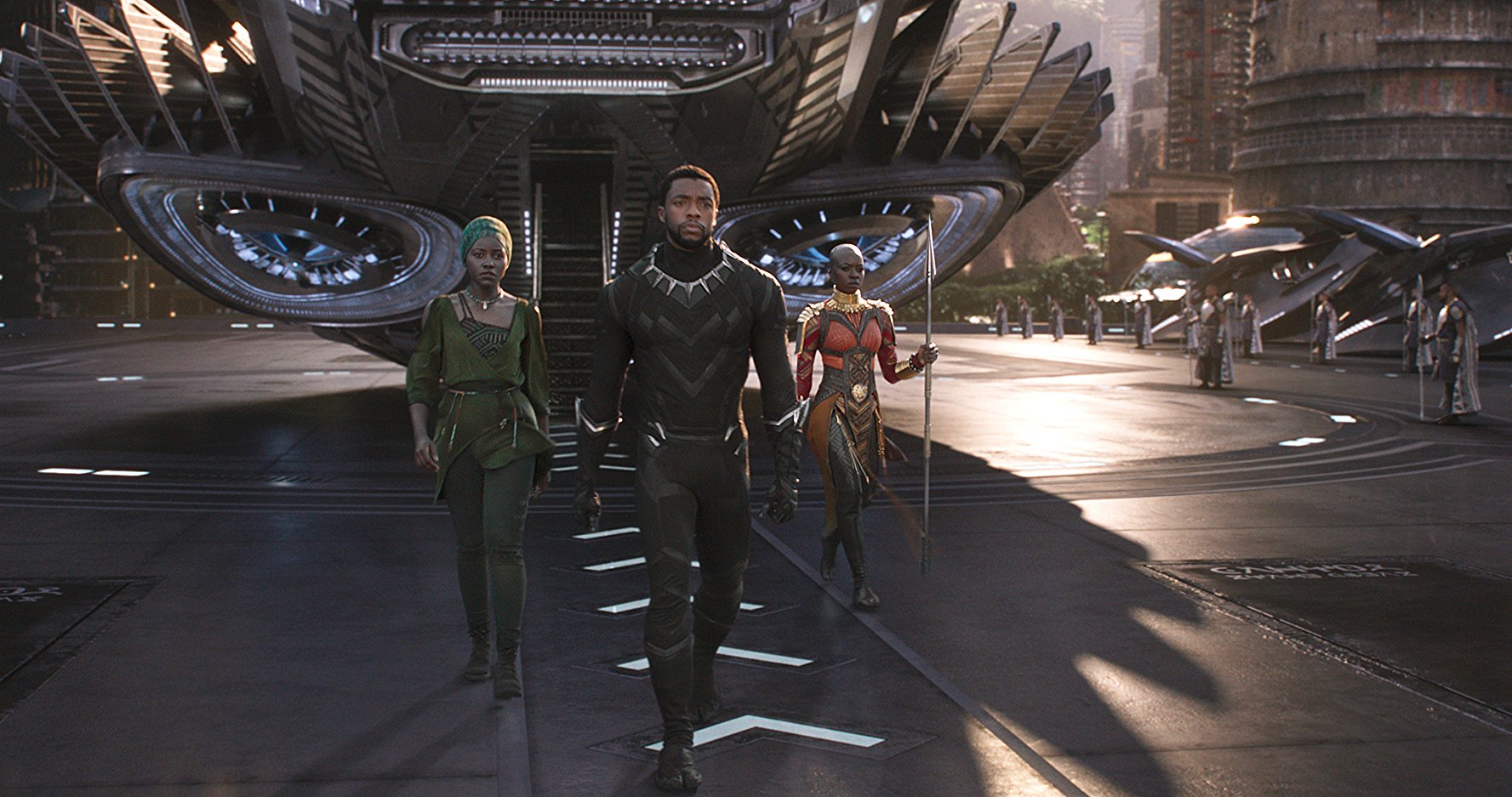Ryan Coogler and the cast of Black Panther are taking no prisoners. That much was evident when they released an excellent teaser trailer backed by a great Run The Jewels track. Any doubt was dashed with the even more impressive trailer that showcased the stunning Wakandan landscape and acrobatic fight scenes.
I’ve already contributed to the over eight million of views the trailer has racked up so far. It’s safe to say I’m excited and will be speed running to the closest cinema come February 12th here in the UK (it’s too far to sustain a full run).
The biggest potential issue I can see concerns the villain Erik Killmonger. The moment when he shows off his own suit was one of many eyes wide open highlights in the two-minute trailer. But it seems to follow a trend of Marvel releases pitting our hero against a lesser reflection of themselves. There is an interesting conflict between two strong characters with opposing views on how Wakanda should be led.
But it’s still early, and I have a lot of faith in Coogler and his team. Plus, we certainly can’t judge the merits of Killmonger’s role in a two-hour film based on two seconds of really cool footage, despite what Twitter tells us.
Besides, the details of the plot aren’t important right now. The fact we’re anticipating the release of a Black Panther film at all is. Like Wonder Woman earlier in summer, Black Panther will have big ramifications for black superheroes in films, for representation in Hollywood, and certainly for a young audience watching.
That’s not to say we’ve not seen any black superheroes. Spawn (if antiheroes count), Storm from the X-Men, Hancock (if alcoholic heroes count) are among a notable few. And of course, there is Blade. The Wesley Snipes trilogy is the most successful black superhero franchise by a distance. On the small screen, we have the more recent and very impressive Luke Cage. So they do exist, yet this is different…
This is a mainstream film with a black director, directing a predominantly black cast in a story that puts a black superhero from an African -inspired nation front and centre of a true blockbuster release from a major studio.
This matters.

From what has been shown in the teaser, trailer and a distinguished Civil War cameo, expectations will be met at a minimum. Chadwick Boseman’s portrayal of Black Panther is a cool, confident, charismatic character who has brought all the swagger from his James Brown portrayal in Get On Up. He’s not a sidekick, this is his story. A story about a young prince coming into power in tragic circumstances and the internal and external conflict that arises from that.
Ever since superheroes found their place in pop culture, we’ve accepted their potential for helping children find role models who spark imaginations and help them aspire to use their talents to do good in the world. But what if those role models don’t look like you or the people around you? If you’re male and white you’ve not had to consider these questions, but everyone else does.
We’ve seen decades of white male heroes. This includes several iterations of Spiderman, Superman, and Batman. Admittedly It’s resulted in some amazing films (Batman v Superman notwithstanding), but a lack of diverse representation sends a subtle but consistent message that this isn’t for everyone.
It matters when young comic book fans can’t see themselves on screen. It can lead to questions over whether the aspirations of greatness are for them or just the people who look like Peter Parker, Clark Kent or Bruce Wayne.
That kind of implicit exclusion also comes with explicit exclusion. Just look at the outrage reactions that come with women or people of colour introduced as leads in the new Star Wars trilogy, or the terrible harassment that is constantly launched at cosplayers portray characters of a different race. It all sends a message that can make you question whether everyone is allowed to share in the ideals that these heroes are supposed to uphold.
So to have a release on the horizon with the full promotion weight of Marvel behind it mean a lot for representation. Comic book readers are a diverse bunch and the heroes we see on screen should be too.

It’s not just comic book fans either. The great thing about films is their ability to reach a wider audience. It’s a shame, but most people don’t read comics. we’re told this all the time at comic conventions when people look appreciatively at our manga titles before revealing they’re not much of a reader. So it’s been great to see positive reactions and anecdotal evidence of this from those who don’t consider themselves comic fans. It brings more awareness to the medium as a whole.
On the business side, a successful Black Panther film, tells the studios it’s safe to green light more diverse stories. I was excited for the success of Wonder Woman and am hoping for similar success from Black Panther.
There are many good stories that exist outside the realm of the white male protagonist. Representation matters for the people making the films as well as us watching them.
Besides, if we can accept aliens visiting from space, monstrous creatures rising from the sea and everything in between, we can accept a black superhero. Here’s hoping this is just the start of much more to come.
Long Live The King!







I’m so excited about the movie and especially the representation of a continent that despite its size is regularly overlooked.
The review gave a new perspective and opinion which wasn’t mine as none of my other friends are very interested in the machinations of a black woman who likes black men in costumes. Thank you for your appreciation
I’m really looking forward to this one. good article